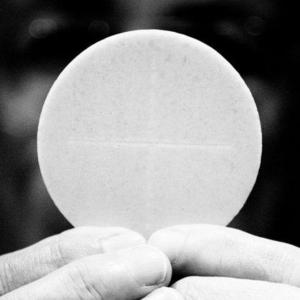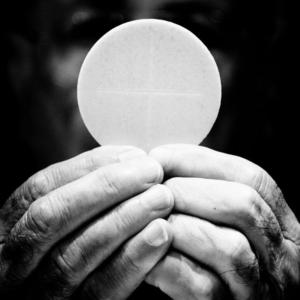Are You On Mission?
Bishop Rob Northwood July 7, 2019 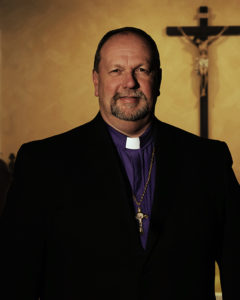
Christians are a people on mission. The Christian mission is to make visible the Kingdom of God while reconciling men to God and one another. The Patriarch has called us this year to focus on Convergence Evangelism. Jesus, in Luke’s gospel (chapter 10) sends out His disciples on mission, two by two, into the cities and into places He Himself was about to go. Not unlike John the Baptist, they, as forerunners, would go ahead and stir up spiritual things where He wanted to work.
The harvest is great. (Luke 10:2) There is a literal world of people waiting to hear the gospel- The Good News. The news that God has brought salvation and is forgiving and is not angry. To understand the concept of this great harvest, you might imagine that suddenly you alone were responsible to go out and manually harvest every crop in your entire county. You would begin to realize the amount of labor required to bale each bale and cut every stalk by hand. The tricky thing about a harvest is that you MUST bring it in when it’s ready. It’s not going to stand in the field forever.
Herein lies the problem- the laborers are few. (Luke 10:2) Jesus commands His people to pray to the Lord of the Harvest to send out workers into the harvest. He tells us to call for help. If we’re on mission, then we are all laborers. It’s His harvest. It’s His mission. He says, “Go your way, I’m sending you out as lambs among wolves.” (10:3) This is a battle of unusual combatants. You don’t usually see wolves being confronted by lambs, but rather the other way around. This teaching begins to sound like a sendoff into enemy territory. Jesus’ message is that you don’t need to take money and provision, but rather, you must learn to trust God to lead you to the place you must go and trust that He will provide. If you go to a house and there’s peace there, stay there. You are a laborer and a laborer is worthy of his hire. We aren’t paid by men, but by God. It’s His harvest.
Christians are to go and proclaim this fact: the Kingdom of God is here! Whether those who hear receive it or not, the fact is, the Kingdom of God has come. Heal the sick and tell them that the Kingdom of God is come. Healing is a big deal, especially if you’re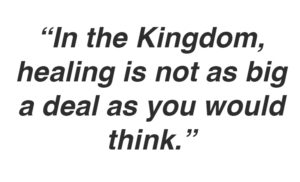 the one that get’s healed. This said, in the kingdom, healing is not as big a deal as you would think. In His hometown, Jesus says He couldn’t do much, but “only heal a few people.” (Mark 6:5). He sees it as a minimal event. Why? Because what He wants to do is save you forever! Just because your headache or disease is gone, doesn’t mean you have eternal life.
the one that get’s healed. This said, in the kingdom, healing is not as big a deal as you would think. In His hometown, Jesus says He couldn’t do much, but “only heal a few people.” (Mark 6:5). He sees it as a minimal event. Why? Because what He wants to do is save you forever! Just because your headache or disease is gone, doesn’t mean you have eternal life.
The disciples return with joy saying, “Even the demons are subject to us in your name!” Jesus obviously has a heart for these cities and the lost and tormented souls within, but even as they rejoice that the demons are subject and healing is abundant, He tells them that that’s not why they should rejoice. He is seeing the Kingdom from another vantage point. Similar to when he said to Nathaniel, “I saw you sitting under the fig tree before you ever came to me.” (John 1), He says here, “I saw Satan fall from heaven like lightning.” He sees the reversal of the Garden’s curse. He sees the reversal of authority stolen in the fall. He gives them the authority to trample on serpents. The actions they take are immense because Satan himself is shaken as they plunder the strongman’s house. Yet again, he says that this isn’t the biggest thing. He is moved more by the salvation of the disciples and to those whom they proclaim the Good News. He says, “Never-the-less rejoice that your names are written in heaven.”
The work of the church is outside the church walls. The battle is outside the walls. First you must be sent, and then you must go. Part of evangelism is helping those bound up, to get free of what’s binding them up. Don’t worry about the people who think you’re crazy, worry about what you’re gonna do when they think you have the answer, when they believe you’re right. Something our Bishop Davidson frequently says is that you have to have a place to stand, to run. You need a base of operations, a church that you can be established in, from which to be sent out and to return. We aren’t guilty if we try and fail and we aren’t credited if all goes well. That’s the security that is provided being under the church’s authority.
Here’s what you can do to get on mission: pray for the mission of the church. We aren’t trying to build a bigger church. We are trying to depopulate Hell. A healthy church is a church that is depopulating hell, and a healthy church grows. If we are on mission we will grow and then plant another church and another church. So pray for this parish and her mission.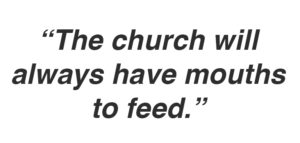
Give your time. The church will always have mouths to feed, toilets to clean, and floors to sweep. Don’t miss your calling by assuming that others will do the work without you. Get on mission. Give your time.
Learn to testify. Testify of what Jesus is doing and has done in your life. Testify about how He has set you free. We, as Christians, are called to grow, not just be planted, but to grow and keep growing. We must learn to know His voice. The sheep should know the voice of the Shepherd. The more you come to know His voice, the less likely the enemy will be to insert his own counterfeit.
Another thing we do is to share the gospel. To read it has power; To speak it has power and to digest it is most significant.
Are you on mission? One way you can determine this is to consider whether your decision to attend a church meeting is based on whether it personally benefits you. Are you avoiding Bible study Class because you don’t feel like you are going to benefit? A good person comes to the Healing Service to receive and be healed. A good Christian comes to the Healing Service to help others grow and to give of themselves. You should be determining your involvement based on your ability to give and build. Participate in the work of the church. When a person is going through hard times and they receive a meal or a card, that is a tangible sign of the love of God in their lives.
The harvest is ready. The workers are few. This is the mission. Are you on mission? Go forth into the world, rejoicing in the power of the Spirit!


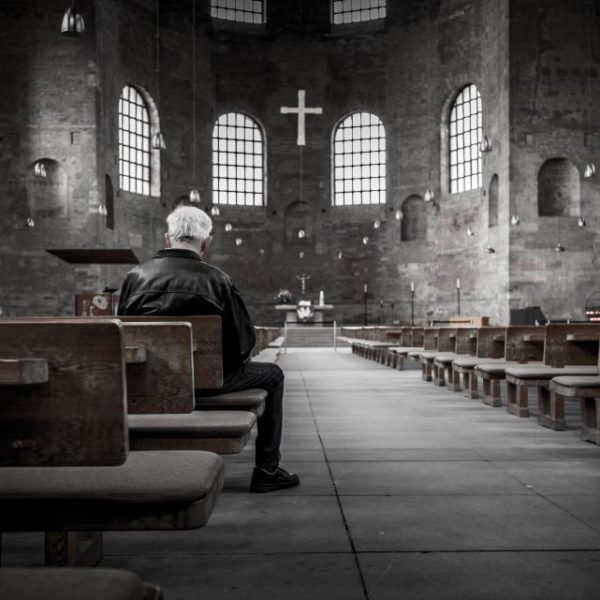
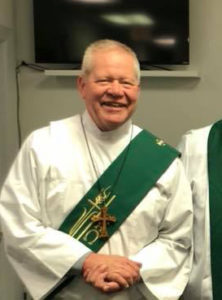 My Spiritual Home
My Spiritual Home